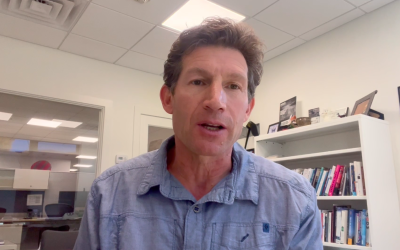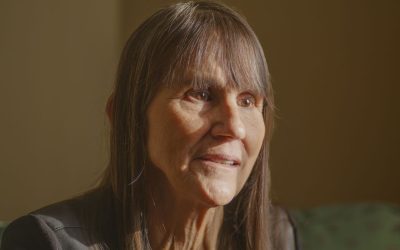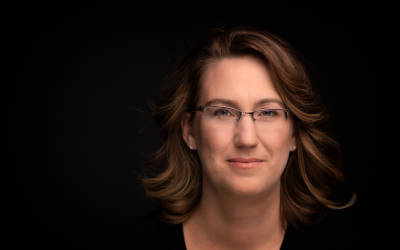We can all agree that the tourism and marketing landscape is shifting dramatically under our feet. When we asked 50 destinations about the key issues they face now and likely will in the future, we received a list of an equal number of challenges back in return. That’s not to say there aren’t myriad opportunities – destinations marketing organization (DMOs) will likely continue to play a large part in improving tourism experiences and developing their destinations, improving the quality of life for residents and being a strong economic driver for years to come. But with all the change, how does a DMO keep up? What does the future role of a DMO look like?
Our chief strategist William Bakker is hopeful and sees enormous value in the role of the DMO, yet believes their mandates will fundamentally change. “On the promotional side, there’s going to be continued disruption and I don’t know where it’s going to end. But it could be that from a communication perspective, the role of a DMO becomes obsolete. I’m not saying it’ll happen, but it’s a possibility. However, on the product side and on the experience side, a DMO is the only organization that can protect its brand and reputation by bringing the right people together behind a common vision, a common story and a common brand, and can then deliver on it. Individual businesses deliver on their own individual pieces. The DMO’s responsibility is to bring all the pieces together and act as a leader.”
But what about destinations themselves? As part of our Leading Thinkers series, which features the insights of destination marketing CEO and leaders who attended our Destination Think Forum in New York City, we asked the world’s most innovative DMOs for their thoughts on what lies ahead. Here are some of their ideas.
“I see the DMO role somewhat as an evolving beast but with a fundamental core that remains true to our purpose as an organization. Essentially we are enablers, we don’t own products or sell tangible goods.”
Steve McRoberts, Group Executive Global Marketing at Tourism and Events Queensland
“The role of the DMO will differ from one destination to another. Some destinations will embrace tourism (and conventions) as part of their economic survival. That DMO will fulfil a traditional role that is focused on growth, which can be profitable for residents. As long as the locals absorb the negative effects of the growing numbers of visitors because of their dependence of the tourism industry, there won’t be any problems. But the question then arises: will destinations stay attractive for visitors in the long term if they’re filled mostly with tourists and tourist shops?
In destinations that are not dependant on tourism (and conventions), because they may have a broader economic model and income, negative results of growth of the visitors industry will have an impact on the city and will lead to protests by residents. Keeping the balance between working, living and visiting is one of the big challenges for these DMOs. Only integrated city marketing organizations can take a role in these destinations, because they have a responsibility for the welfare and wellbeing for residents, business and visitors.”
Eduard Pieter Oud, Chief Operating Officer at Amsterdam Marketing
“Global turbulence leads to the fact that the Swiss currency is being used as a safe haven for investments. This means that the Swiss franc has become strong and expensive, and as a consequence, our prices are rising too fast and too high. The backbone of Switzerland’s tourism industry is the middle class of Western Europe (Germany, Italy, Netherland, France, UK). Switzerland has become unaffordable for most of those people.
Consequently, Switzerland Tourism has to more precisely segment its customers and point out its incomparable tourism offering. Generic marketing messages no longer work for us. This precision marketing is more difficult and more pricey to adapt. We’re on it.”
Martin Nydegger, Director of Business Development at Switzerland Tourism
“We have made a long-term policy plan for the destination and we have a clear strategy, but we also have tourism suppliers with the flexibility and agility to take on opportunities or respond to problems or threats. Our long-term planning supports good visitor management, spreading visitors in time and place across Flanders, taking into account places where the residents live in cities with many tourists. And that’s just one example of thinking holistically.”
Elke Dens, Marketing Director at Visit Flanders and also Chair of the Marketing Group at the European Travel Commission
“We need to change our way of working and also invest much more in both new technology and education. More and more, we are including our members and guests both in steering our product and concept development and as part of our marketing process. We help them facilitate their experience and adventure, and then give they help us market them through our platforms and channels, including social media.”
Magnus Ling, CEO of the Swedish Tourist Association
“It’s all going to be about how well you’re able to demonstrate that you’re creating and adding value to the industry, and that you’re able to deliver a significant return on investment for your community. That isn’t going to change, but I think the value-add proposition probably is.”
Will Seccombe, President & CEO of VISIT FLORIDA
“I believe there will be an increasing emphasis on developmental issues, the regulatory environment, environmental issues and responsibility, as well as tourism’s place within the social fabric of communities.”
Ólöf Ýrr Atladóttir, Director General of Icelandic Tourist Board; Vice President of the European Tourism Council (ETC)
“DMOs need to assert themselves as economic development organizations. Successful DMOs will be the ones who pivot from viewing themselves as sales marketing organizations to orchestrators of community growth through travel and tourism.”
David Gilbert, President & CEO at Destination Cleveland, the Greater Cleveland Sports Commission and the 2016 Republican National Convention Host Committee
“The “M” in DMOs will probably be replaced by something else, as we all know by now that our marketing efforts are less significant when compared to user-generated content and other types of earned media. I feel we will work more often with local communities and include them in tourism planning and promotion. We have started going in that direction and will involve city residents in writing our tourism master plan. We also give our Snapchat account for selected residents to manage, which gets great responses.
I think we all need to be a bit more humble and realize that we are only the facilitators, not the bosses of the destination.”
Dr. Isaac Mizrachi, Tel Aviv Global’s Director of Tourism
Destination Think helps destination marketers and DMOs adapt to change by pairing modern strategy and implementation services with an unmatched global expertise in destination marketing. Stay relevant; contact us to find out how we can help.
Featured image credit: Véronique Debord-Lazaron, Flickr









0 Comments